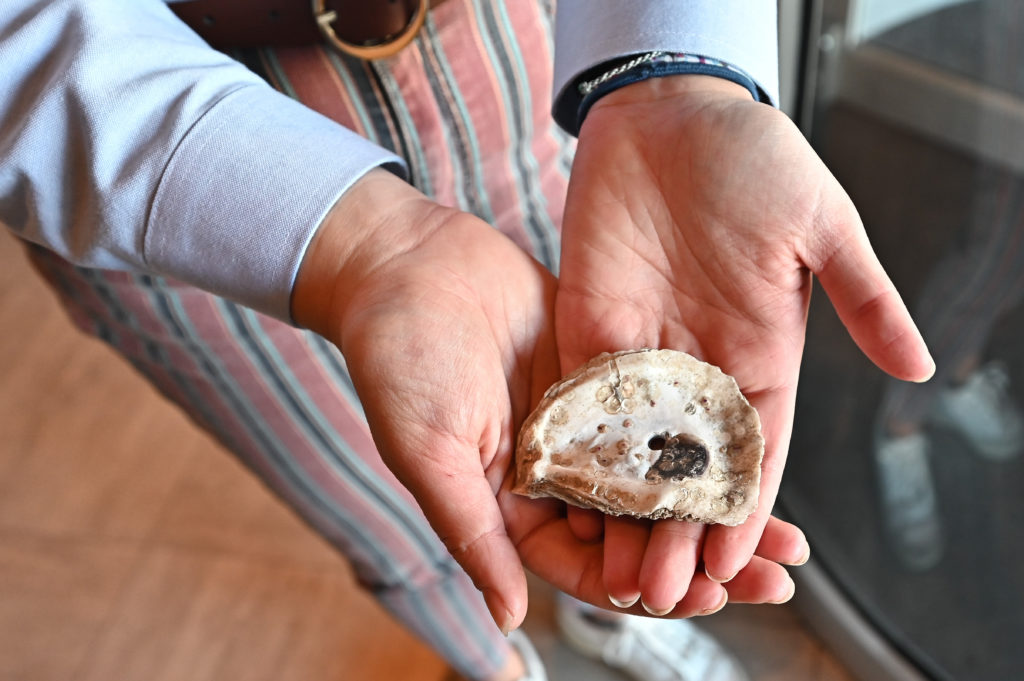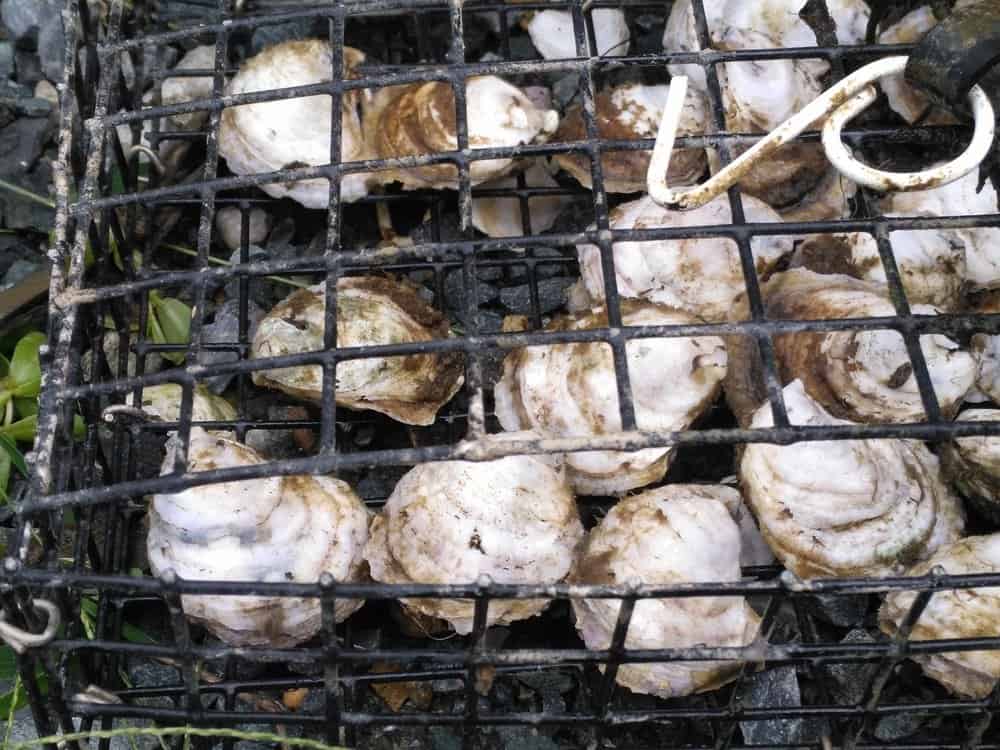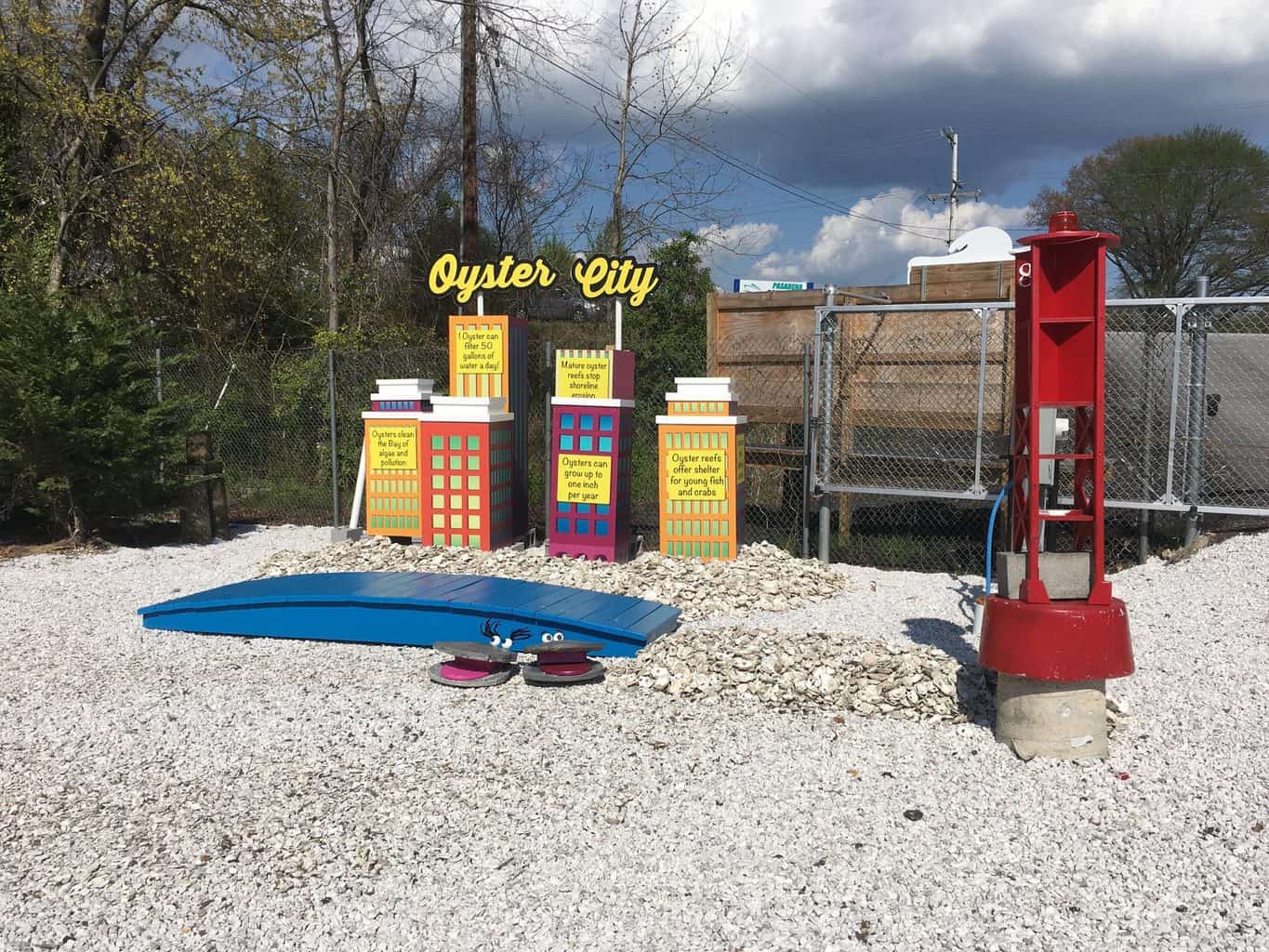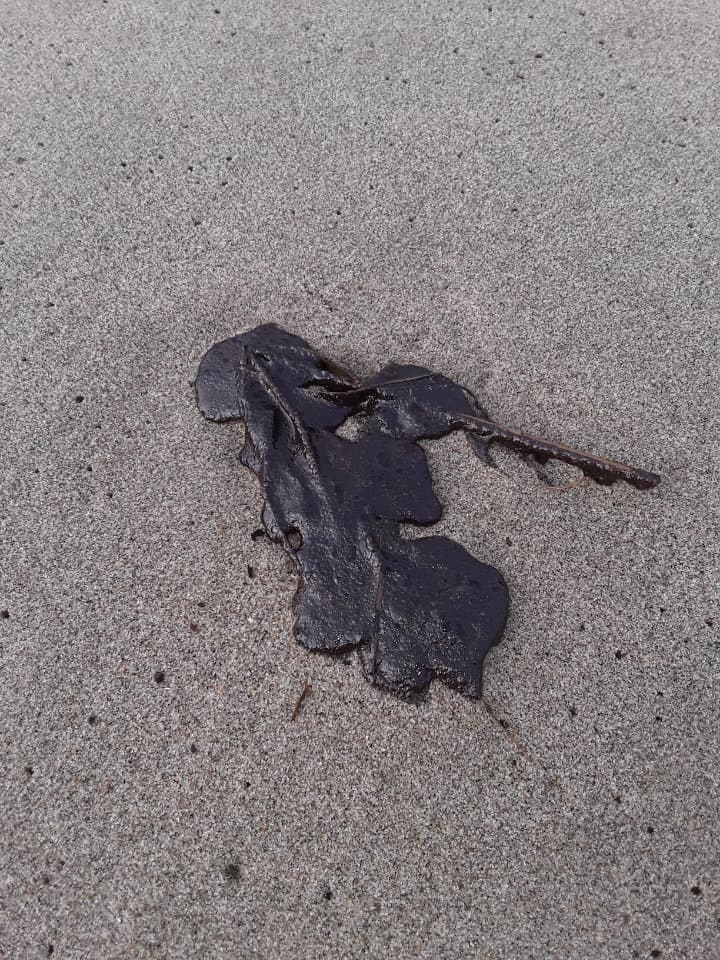In the fight to restore the Chesapeake Bay oyster population, there is a constant need for old oyster shells use to grow new oysters on. In Virginia, a new bill would give restaurants a tax credit for saving their oyster shells for recycling.
The legislation, introduced by State Senator Monty Mason (D-1) and Delegate Tim Anderson (R-83), would offer a tax credit of $4 for each recycled bushel, up to a maximum of $1,500 per year.
It adds an extra incentive to do what dozens of restaurants have already been doing voluntarily.
“Oyster shells are a limited resource that are key to increasing the Chesapeake’s oyster population, supporting the wild oyster fishery, and assisting aquaculture operations,” said Chesapeake Bay Foundation (CBF) Virginia Oyster Restoration Specialist Julie Luecke. “Many dedicated Virginia restaurants and businesses are already recycling shells and donating them to restoration programs. A tax credit would benefit these restaurants for their hard work and provide an important incentive to new businesses to increase the supply of oyster shells.”
Recycled oyster shells are vital to oyster restoration in the Chesapeake Bay. The shells are cleaned and dried, then larvae from a hatchery attach to them, producing “spat” or juvenile oysters. The spat-on-shell can be planted onto reefs in the water. Recycled oyster shells are also extremely important to Virginia’s oyster replenishment program, which supports the wild oyster fishery by placing shells in state-managed public waters for oysters to grow and eventually be harvested. Shells are also needed for the commonwealth’s growing oyster aquaculture industry.
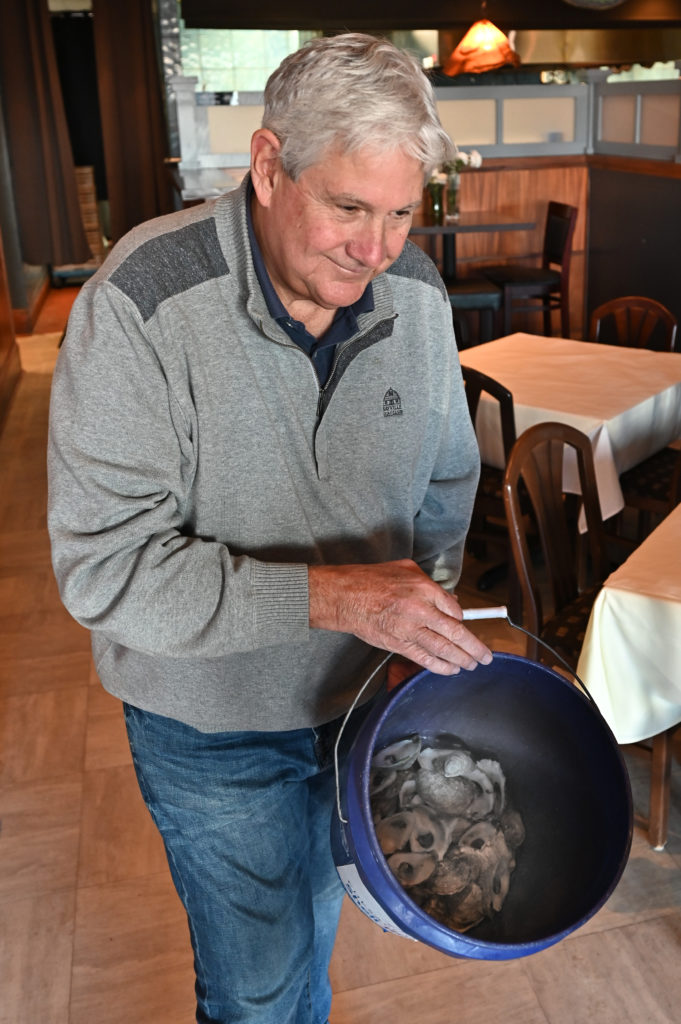
“This is a no brainer,” said Todd Jurich, owner and chef at Todd Jurich’s Bistro in downtown Norfolk.
Jurich noted that his restaurant has been recycling oyster shells since before there was an official program. “Some years ago, my staff started saving the shells on their own,” he said. “We have two buckets we keep in the walk-in cooler. We keep the shells in those. A volunteer comes by every Saturday to collect the shells. We probably donate 200 or more each week, though it is seasonal—we sell more oysters in the winter.”
CBF estimates that about 40 Virginia restaurants already participate in the program. More would be much better.
Jurich agrees. “Restaurants took the brunt of the pandemic. They need all the help they can get. Recycling oyster shells is simple, but it does require staff and time. Every little bit helps. This will help both restaurants and the Bay. I hope it passes.”
Because the bill has bipartisan support, it might make its way through. The Senate version passed the Senate Finance Resources Subcommittee. The House version passed a House Finance subcommittee on Monday, Jan. 23rd.
Individuals can also participate. CBF has numerous oyster shell collection sites in eastern and central Virginia.
Restaurants that join the program qualify to become part of the Chesapeake Oyster Alliance’s Reef Builders Network. The alliance seeks to add 10 billion oysters to the Chesapeake Bay by 2025. Your local restaurant can get involved here.
Another nonprofit, the Oyster Recovery Partnership, has a similar program called the Shell Recycling Alliance which collects shells from 10 Virginia restaurants, plus more than 125 Maryland restaurants.
In Maryland, the Department of Natural Resources (DNR) used to offer a tax credit, but that changed over to a grant program in which nonprofits and businesses could receive a grant up to $2,000 annually, based on a $5 per bushel amount. CBF’s Allison Colden says DNR has not yet rolled out the new grant program application or regulations.
-Kendall Osborne

